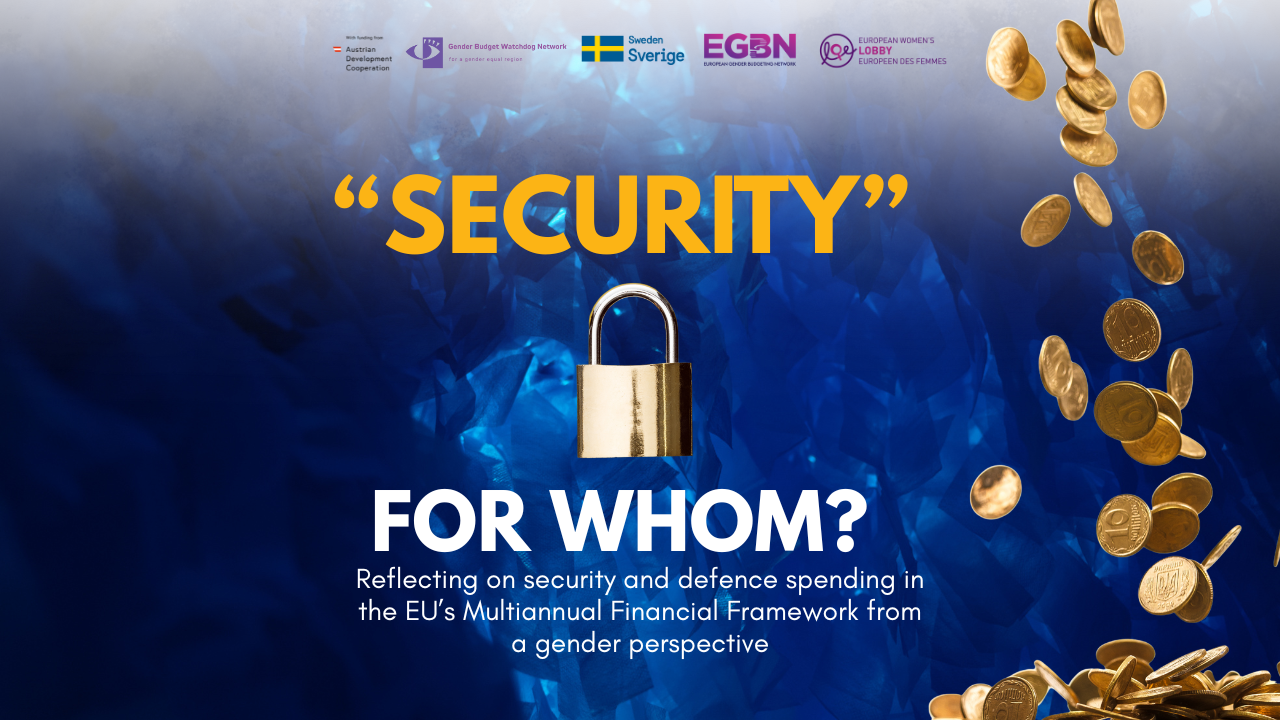The recent webinar, “Security’ for Whom? Exploring Gender Equality in the EU’s MFF”, brought together experts, activists, and civil society representatives to examine the intersections of militarization, security, and gender equality within the European Union. Participants explored how rising defense budgets and traditional militarized approaches often neglect human security, social justice, and the protection of women and marginalized communities.
Speakers emphasized the urgent need to shift from focusing solely on military strength to investing in peace-building, community cohesion, and human-centered security strategies. Gender-responsive budgeting and adherence to international human rights frameworks, including CEDAW and CRPD, were highlighted as crucial tools to ensure that resources promote equality and social protection rather than perpetuate violence and inequality.
The discussion also highlighted the importance of coalition-building across sectors, countries, and international networks. By joining forces, feminist and peace actors can amplify their voices, advocate for alternative policies, and ensure gender equality remains central in EU decision-making, particularly in the context of the upcoming Multiannual Financial Framework (MFF).
Looking ahead, participants called for concrete actions, continued networking, and strategic engagement with policymakers to translate commitments into measurable outcomes. Upcoming events, such as the European Women’s Lobby session in December and the Gender Budgeting Conference in Cyprus, will offer opportunities to strengthen advocacy and collective influence.
The webinar underscored that advancing human security, sustainable peace, and gender equality requires united, cross-sectoral efforts. By working together, participants reinforced that feminist perspectives must remain at the core of EU policies shaping security and funding priorities.
👉 See more on this link:


